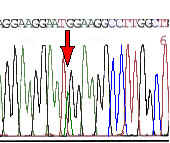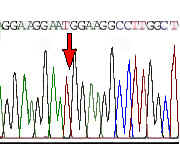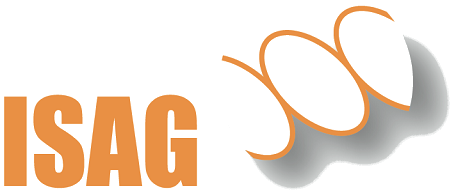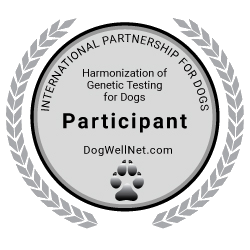Progressive retinal atrophy (PRA)
Disease
Progressive retinal atrophy (PRA) is a leading hereditary cause of blindness in pedigree dogs as is its counterpart retinitis pigmentosa (RP) in humans. PRA shows genetic heterogeneity, as does RP, with several distinct forms already recognized and several more remaining to be investigated.
The retina is a thin layer of neural cells that lines the back of the eyeball. The vertebrate retina contains photoreceptor cells (rods and cones) that respond to light. The cones mediate high-resolution vision and colour vision. The rods mediate lower-resolution, black-and-white, night vision. The degeneration of the retina results in loss of vision, often leading to blindness. One can distinguish between late onset forms of PRA and early onset (whelp-age) dysplastic changes. The clinical and ophthalmologic signs of both forms are similar.
Affected dogs suffer from bilateral Mydriasis, the reflection of the Tapetum lucidum is increased and the retinal vascular network appears atrophic. Currently, there is no treatment for the disease.
Types of progressive retinal atrophy
Genetic test for the following forms of PRA exist:
(Please click on the respective link for further test information.)
- crd-PRA in Standard Wirehaired Dachshund
- dominant form of the PRA in Bull Mastiff and English Mastiff
- generalized PRA in Schapendoes
- GR-PRA1 in Golden Retriever
- prcd-PRA* in various dog breed (see info)
- rcd1-PRA in Irish Setter
- rcd1a-PRA in Sloughi
- rcd2-PRA* in Collie
- rcd3-PRA in Welsh Corgi
- rcd4-PRA in Gordon Setter and Irish Setter
Testing procedure
First, the part of the gen carrying the mutation is specifically amplified via polymerase chain reaction (PCR). Subsequently, sequence-analysis with an Genetic Analyser exhibits the causative mutation for PRA with very high reliability.
 |
 |
| Irish Setter genetically healthy no rcd1-Mutation (no green peak) |
Irish Setter carrier for rcd1-mutation (green peak resembles mutation) |
Questiones?
Please contact our molecular biology team for further questions.
LABOKLIN GmbH und Co.KG
Steubenstraße 4
D-97688 Bad Kissingen
Telefon: +49 (0)971 72020
Fax: +49 (0)971 68546
E-Mail: info@labogen.com
Links
*) Partnerlaboratory


